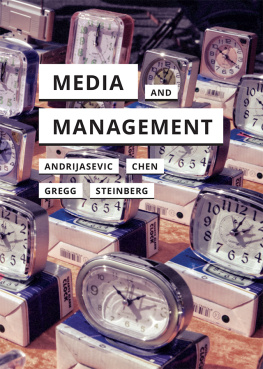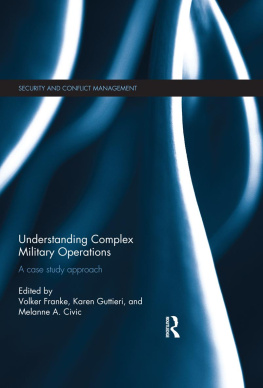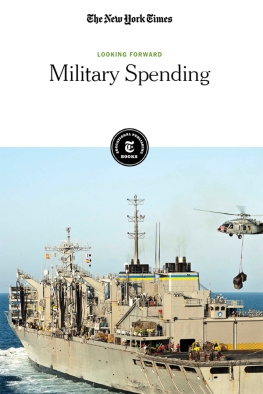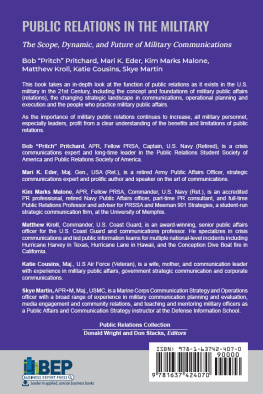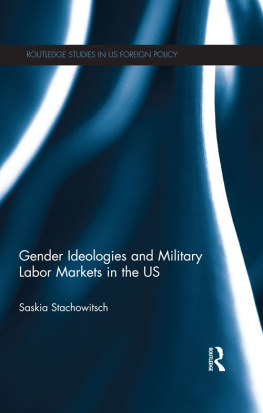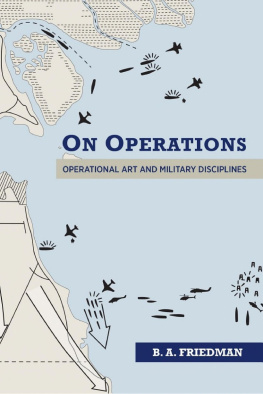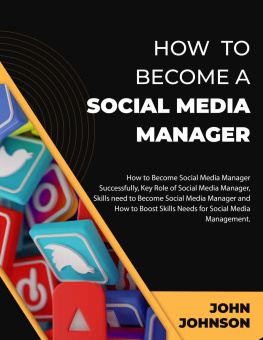
Military Media Management
This book examines the practices of actors involved in the media reportage of war, and the ways in which these practices may influence the conduct of modern military operations.
War is a complex phenomenon which raises numerous questions about the organization of society that continue to challenge all those involved in its study. Increasingly, this includes the need to engage theoretically and empirically with the progressive collapse between the ways in which wars are conducted and the manner in which they are reported in the media.
Drawing on the work of Erving Goffman, Military Media Management offers a distinctly new approach to our appreciation of the dynamic relationship between war and media; one that is fundamentally a product of social relations between those engaged in reporting war and those conducting war campaigns. By exploring how and why the military manage information in particular ways, the text succeeds in providing a framework through which wider sociological investigation of this relationship can be understood.
This book will be of much interest to students of military and security studies, media studies, war and conflict studies and IR in general.
Sarah Maltby is a lecturer in sociology and media. She is the founder of the War and Media Network and co-editor of Communicating War: Memory, Military and Media (Arima Publishing, 2007). Her research centers on military information management and representations of conflict in military and journalistic output.
Media, War and Security
Series Editors: Andrew Hoskins
University of Glasgow
Oliver Boyd-Barrett,
Bowling Green State University
This series interrogates and illuminates the mutually shaping relationship between war and media as transformative of contemporary society, politics and culture.
Global Terrorism and New Media
The Post Al-Qaeda Generation
Philip Seib and Dana M. Janabek
Radicalisation and the Media
Legitimising Violence in the New Media
Akil N. Awan, Andrew Hoskins and Ben O'Loughlin
Hollywood and the CIA
Cinema, Defense and Subversion
Oliver Boyd-Barrett, David Herrera and Jim Baumann
Violence and War in Culture and the Media
Athina Karatzogianni
Military Media Management
Negotiating the Front Line in Mediatized War
Sarah Maltby
Icons of War and Terror
Media Images in an Age of International Risk
Edited by John Tulloch and R. Warwick Blood
Military Media Management
Negotiating the front line in mediatized
war
Sarah Maltby
First published 2012
by Routledge
2 Park Square, Milton Park, Abingdon, Oxon OX14 4RN
Simultaneously published in the USA and Canada
by Routledge
711 Third Avenue, New York, NY 10017
Routledge is an imprint of the Taylor & Francis Group, an informa business
2012 Sarah Maltby
The right of Sarah Maltby to be identified as author of this work has been asserted by her in accordance with sections 77 and 78 of the Copyright, Designs and Patents Act 1988.
All rights reserved. No part of this book may be reprinted or reproduced or utilized in any form or by any electronic, mechanical, or other means, now known or hereafter invented, including photocopying and recording, or in any information storage or retrieval system, without permission in writing from the publishers.
Trademark notice : Product or corporate names may be trademarks or registered trademarks, and are used only for identification and explanation without intent to infringe.
British Library Cataloguing in Publication Data
A catalogue record for this book is available from the British Library
Library of Congress Cataloging-in-Publication Data
Maltby, Sarah.
Military media management : negotiating the front line in mediatized
war / Sarah Maltby.
p. cm.
Includes bibliographical references and index.
1. Armed Forces and mass mediaGreat Britain. 2. Great Britain
Armed ForcesPublic relations. 3. WarPress coverageGreat Britain.
I. Title.
P96.A752G75 2012
070.4'4935500941dc23 2011040910
ISBN: 978-0-415-58005-2 (hbk)
ISBN: 978-0-203-12285-3 (ebk)
Typeset in Times New Roman
by Wearset Ltd, Boldon, Tyne and Wear
Acknowledgements
For many reasons this book has been a number of years in the making. For as many reasons, there are a number of people to whom I am indebted and without whom this book would not have been possible.
I am extremely grateful to Andrew Hoskins and Oliver Boyd-Barrett as Series Editors for their belief in the book and their invaluable editorial guidance. I am also thankful to all those from the military and media communities who gave their time so willingly to participate in the research, especially David Hudson.
I have been immensely fortunate to be surrounded by colleagues whose support and intellectual stimulation have been a constant source of encouragement. In particular, I would like to thank Kevin McSorley, Helen Thornham, Andrew Hoskins, Ben O'Loughlin, Richard Keeble, Lucy Robinson and Mike Bracken for variously indulging my ideas and providing crucial feedback when it was most needed. Special thanks also to Martin Innes and Geoff Cooper for their early guidance, academic inspiration and for alerting me (in Goffmanesque terms) to the fact that I should never take up poker. I would also like to acknowledge all the members of the War and Media Network for their continued enthusiasm, and to Kurt Beers for his efficiency in helping to manage the network.
Thank you to friends, including some of those above, whose steadfast loyalty and support during the last ten years has contributed to the completion of this book in more ways than they could know. A special thanks to Lucy and Simon Brooks whose friendship I value beyond measure, and to Hamish Wheeler whose tenacious questioning of the world is both edifying and inspirational. Finally, I am indebted to my family's exceptional care and patience, at times against the odds. In particular, I would like to thank Bryan and Susan Maltby for their unfaltering encouragement of my ambitions and for providing me with everything I might need to realize them.
I dedicate this book to Bryan Maltby for helping me in every way to seize those opportunities that his own mother was denied; may your lines always be tight Dad.
1
Introduction
War is a complex phenomenon raising numerous questions about the organization of social life which continue to challenge all those involved in its study. Increasingly, this includes the need to engage theoretically and empirically with the progressive collapse between the ways wars are conducted and the ways they are reported in the media. This book is a contribution to the continued and necessary scholarly engagement with this field of investigation. Based on ethnographic research conducted with the British military and British broadcasters between 2001 and 2010, it aims to provide a sociologically informed understanding of the motivations and processes apparent in the management of information about military operations


